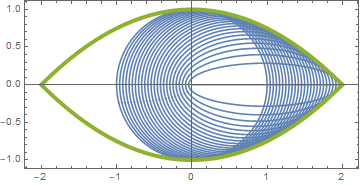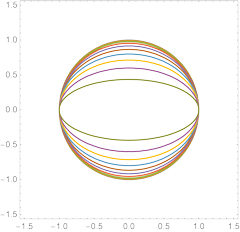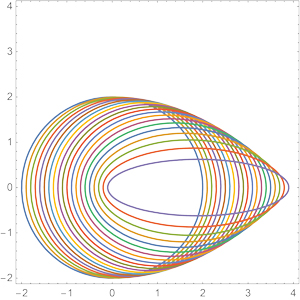For the current version of the question, we can just derive the equation of the envelope in the usual manner. Using Mathematica to do the tedious algebra on my behalf, we obtain:
First[Factor[GroebnerBasis[{(x - e)^2/a^2 + y^2/(a^2 - e^2) == 1,
D[(x - e)^2/a^2 + y^2/(a^2 - e^2) - 1, e] == 0}, {x, y, a}, e]]]
(4 a^2 - x^2 - 4 a y) (4 a^2 - x^2 + 4 a y) (x^2 + y^2)
where we see the envelope has three components: an isolated point at $(0,0)$ and two parabolas (which are certainly "classical curves of mathematics" as the OP asks), $y=\pm\dfrac{x^2}{4a}\mp a$:
With[{a = 1},
Show[ParametricPlot[Table[{e + a Cos[t], Sqrt[a^2 - e^2] Sin[t]}, {e, 0, a, a/24}],
{t, 0, 2 π}],
Plot[{x^2/(4 a) - a, a - x^2/(4 a)}, {x, -2, 2},
PlotStyle -> Directive[AbsoluteThickness[4], ColorData[97, 3]]],
AspectRatio -> Automatic, PlotRange -> {{-2, 2}, Automatic}]]




